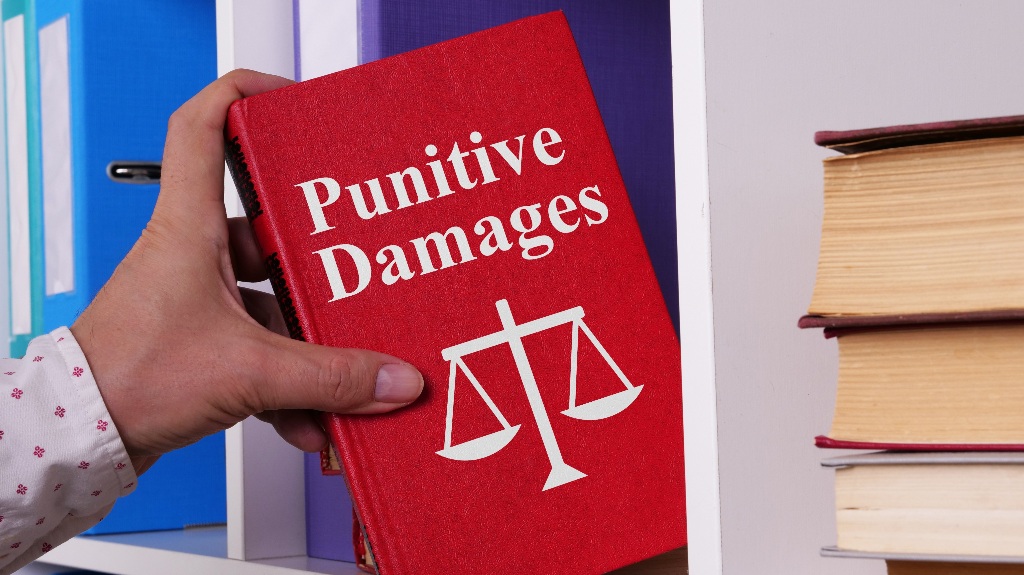After you get hurt in an accident caused by another party, you may seek financial recovery from them for economic and personal losses you sustain due to your injuries. However, a personal injury lawsuit may also result in an award of punitive damages. What do punitive damages award you money for, and when can you receive punitive damages in a personal injury case?
Understanding Punitive Damages
In a personal injury lawsuit, an award of punitive damages punishes the defendant(s) for conduct deemed willful, wanton, malicious, or reckless. Punitive damages awards also (ideally) deter others from engaging in similar conduct as a defendant made liable for punitive damages. Punitive damages represent a distinct category of compensation from compensatory damages, which seek to reimburse a personal injury plaintiff for the financial and emotional losses they incurred due to their injuries, such as medical expenses, long-term disability care, lost income/earning capacity, and pain and suffering.
Courts and juries typically award punitive damages only in the most exceptional cases involving a defendant willfully injuring a plaintiff or injuring the plaintiff through wanton or egregious conduct that shocks the public conscience through its reckless disregard for safety or human life.
When Do Juries Award Punitive Damages?
Juries cannot award punitive damages in cases involving ordinary negligence. Instead, a defendant’s conduct must involve a higher degree of culpability, such as consciously disregarding a substantial risk to the safety of others or knowingly or willfully inflicting injury on others. Examples of scenarios in personal injury cases where juries might award punitive damages include:
- A drunk driving accident caused by a motorist with prior DUI convictions
- Drive-by shootings
- Performing a medical procedure on a patient while intoxicated
- A company selling a product that it knows has dangerous defects
In New York, a plaintiff must specifically include a request for punitive damages in their initial complaint before a jury can consider whether to award punitive damages.
Factors Juries Consider When Awarding Punitive Damages
Juries may evaluate various factors and circumstances when determining the amount of a punitive damages award. Some of the factors jurors might consider include:
- The egregiousness of the defendant’s conduct, including whether the defendant intended to harm the plaintiff or knowingly disregarded a substantial risk that their conduct would cause severe injury
- The severity of harm suffered by the plaintiff, including whether the plaintiff sustained substantial permanent disability or disfigurement
- The defendant’s ability to pay and whether a specific award would adequately “punish” the defendant
A plaintiff seeking punitive damages must prove by clear and convincing evidence (a higher standard of proof than the usual “preponderance of the evidence” standard) that the facts of the case support an award of punitive damages.
Unlike other states, New York does not cap punitive damages, allowing juries to set an amount of punitive damages they believe necessary to punish the defendant and create a deterrent for identical future conduct.

Challenges of Seeking Punitive Damages
Some of the challenges that plaintiffs may face when seeking punitive damages in a personal injury case include:
- Needing to request punitive damages at the outset of a lawsuit, even though further investigation and discovery may later reveal evidence supporting a punitive damages award
- Clearing the higher “clear and convincing evidence” burden of proof
- Reluctance by some juries to award punitive damages, especially if they view a plaintiff requesting punitive damages as “in it for the money”
Contact a Personal Injury Lawyer Today
When you’ve suffered injuries caused by another party’s willful, wanton, or egregious conduct, a jury may award you punitive damages in a lawsuit. Contact McCann Legal today for a free, no-obligation consultation with a personal injury attorney to learn more about punitive damages in personal injury cases and discuss whether your case might qualify for an award of punitive damages.


